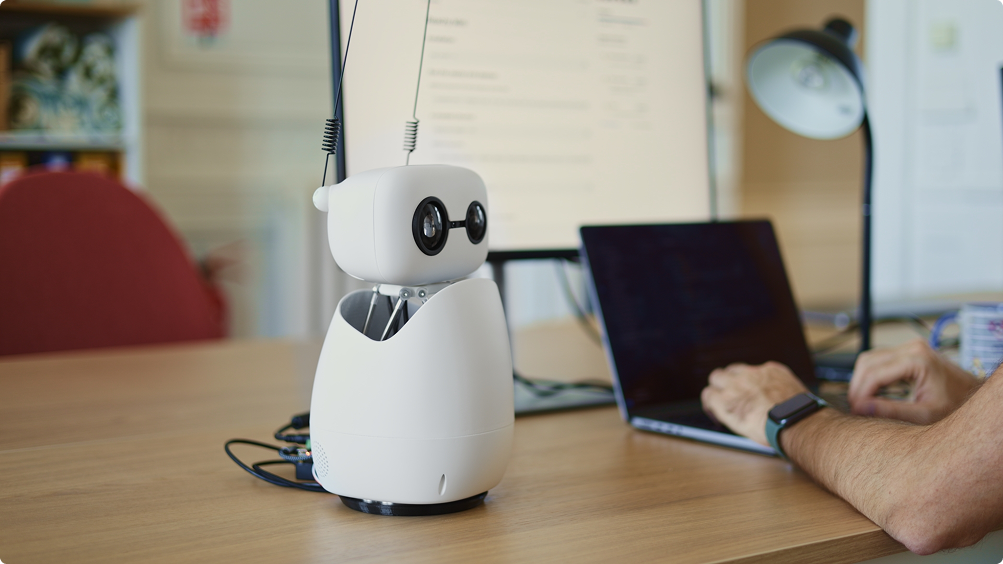Hugging Face warns that closed-source robots threaten user control

Hugging Face is sounding the alarm about a future where robots become opaque black boxes owned by just a handful of corporations.
"I feel like it’s really important for the future of robotics to be open source, instead of being closed source, black box, [and] concentrated in the hands of a few companies," Hugging Face CEO Clément Delangue told TechCrunch. "I think it’s quite a scary world to have like millions of robots in people’s home controlled by one company, with customers, users, not really being able to control them, understand them."
Hugging Face is taking a different path with its Reachy Mini: a compact, fully open source desktop robot built for developers, educators, and hobbyists. The robot is modular, sold as a kit, stands 28 centimeters tall, weighs 1.5 kilograms, and is designed to sit right on your desk. Programming is done in Python, with support for JavaScript and Scratch in the works.
There are two versions: the Lite model costs $299, needs an external computer, and uses a wired connection. The wireless version, at $449, includes a Raspberry Pi 5, Wi-Fi, a battery, and extra sensors, like an accelerometer and four microphones instead of two.
Hugging Face pushes open robotics
On the technical side, Reachy Mini features a wide-angle camera, speakers, motorized head and body movement, and two animated antennae. Out of the box, it comes with more than 15 behavior modules, and users can add more through the Hugging Face Hub. The idea is for users to create, share, and remix their own robot functions.
Reachy Mini is part of a broader open source robotics push at Hugging Face, which recently acquired Pollen Robotics and launched the LeRobot project.
AI News Without the Hype – Curated by Humans
As a THE DECODER subscriber, you get ad-free reading, our weekly AI newsletter, the exclusive "AI Radar" Frontier Report 6× per year, access to comments, and our complete archive.
Subscribe nowAI news without the hype
Curated by humans.
- Over 20 percent launch discount.
- Read without distractions – no Google ads.
- Access to comments and community discussions.
- Weekly AI newsletter.
- 6 times a year: “AI Radar” – deep dives on key AI topics.
- Up to 25 % off on KI Pro online events.
- Access to our full ten-year archive.
- Get the latest AI news from The Decoder.